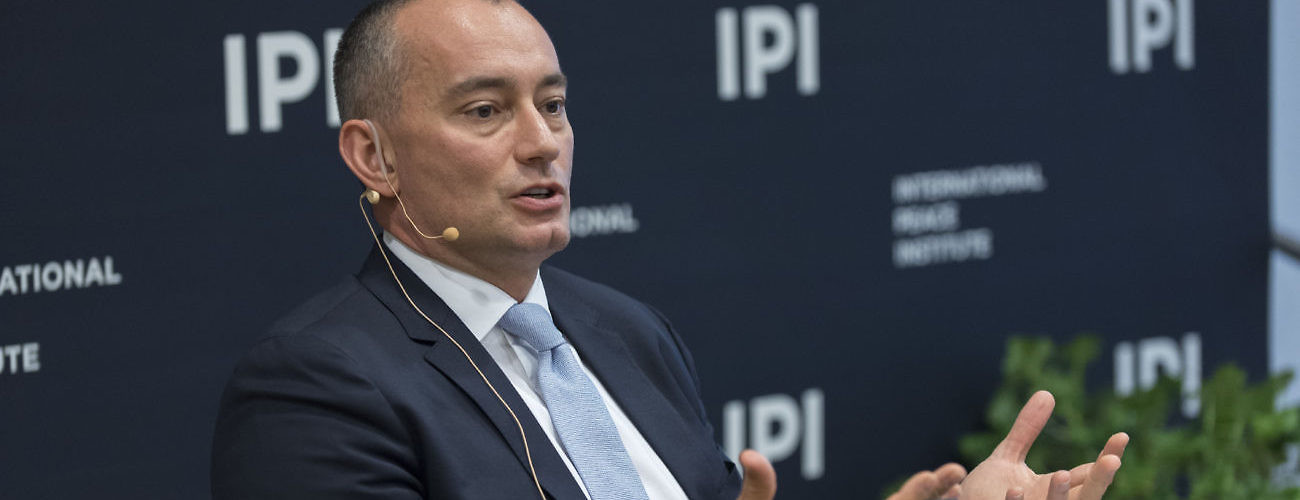Nickolay Mladenov, the United Nations Special Coordinator for the Middle East Peace Process (UNSCO), detailed a decade of deteriorating conditions in Gaza, noting that it had “de-developed” over the past ten years of governance under Hamas and that a new agreement promising a reconciliation between Hamas and Fatah had stalled.
“Hope was created with the agreement, but it seems to have been taken away,” he said, referring to a pact signed in Cairo in mid-October between the two Palestinian parties. “This is where we are in Gaza,” he said, adding the grim prognosis that if “you take hope away, violence follows.”
Mr. Mladenov was speaking at a Dec. 19 event in IPI’s “Leading for Peace: Voices From the Field” series, just days after a decision by President Trump had roiled the already troubled waters of peacemaking in the Middle East by declaring that the United States would now unilaterally recognize Jerusalem as the capital of Israel.
“We’re certainly at a critical crossroads of the Middle East peace process,” he said. “It’s not just the American decision, but it’s also the stalled peace process itself, the situation in Gaza, and the political dynamic among Israelis and Palestinians that is creating a very different situation than we have had in a long time. The international architecture dealing with this is collapsing.”
He enumerated some stark figures to illustrate the desperation of life in Gaza. He said that in the year 2000, 98 percent of the water flowing in Gaza’s pipes had been drinkable but that today only 10 percent is. With the local aquifer becoming increasingly polluted, he said, the situation would be “irreversible” by 2020.
Desalinization is declining and hospitals are failing because normal electricity is available only 12 hours a day, he said. He noted that overall unemployment is now at 45 percent, and, for youths, at 67 percent, and 40 percent of the residents of Gaza live in poverty.
By contrast, he said, in the West Bank, where the Palestinian Authority governs, there has been progress, and international assistance exists. He compared that to Gaza, under Hamas governance, where there is no access to development financing, and institution-building has stopped.
The key, therefore, to alleviating this humanitarian crisis, he said, was bringing the legitimate Palestinian national authority back to Gaza–which is the stated purpose of the Cairo agreement.
He said that there were commonly acknowledged steps to be taken to put the agreement into practice, like clearing closures and moving to restore services and bringing back legitimate governance, but that neither side had followed up on them. What was missing, he was asked. “Political will,” he said.
He argued that there was movement in some Arab governments to building “centers of moderation” in the troubled region that could resist radicalization and start to create internal capabilities to deal with threats.
“However, it’s easy for the people of Gaza to blame everything on Israel if things are going wrong and not blame Hamas,” he said. “If you want to protest against the occupation, you are welcome to do so, but if you want to protest the rising prices of food or the lack of work, you’ll find yourself in a dark spot.”
In conclusion, he said, “People adapt to worsening situations, that is the way human nature is structured. I say that the situation is unsustainable, yet it’s gone on for half a century.”
Warren Hoge, IPI’s Senior Adviser for External Relations, moderated the conversation.








